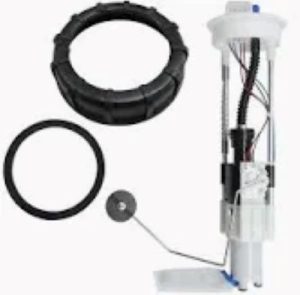New fuel pumps are sometimes covered under warranty, but coverage significantly differs on types and vehicle manufacturer. In newer cars, the fuel pump could be included in the standard manufacturer's warranty, where major engine and fuel system parts are normally covered for 3 to 5 years or up to 60,000 miles, whichever comes first, depending on brand. On the other hand, extended warranties may also include fuel pumps, particularly in fully packed plans that go beyond the basics including wear-and-tear items and failures due to regular usage.
Third-party warranties are a little different. While some extended warranties do cover fuel pumps, most do not cover parts that are considered wear items-those that can be expected to break down over a period of time. In fact, it's estimated that 20% of all warranty claims are denied because they're for wear items not typically covered under a basic warranty plan. However, premium plans generally include coverage for fuel pumps, since they are actually necessary for the proper operational function of the vehicle. As given, the representative of a major third-party provider has stated, "Covering essential components like the fuel pump prevents unexpected repair costs and extends vehicle longevity.".

For the people who would want an extended warranty, one must go through the policy detail thoroughly. For example, the basic powertrain warranty will cover theonly if it is in a way related to the powertrain or emission system. Since these parts may cost as high as $700 in parts and labor, knowing whether you are covered through a warranty could save you a lot of money.
In older cars, the type of warranty and their coverage differ markedly according to age/mileage and who gives the warranty. The dealership can also provide a certified pre-owned warranty that may include limited coverage on fuel pumps if the car has low mileage, for example, below 80,000 miles. As mileage on the vehicles increases, so does the rate of fuel pump failure, with close to 50% occurring after 100,000 miles.
Routine maintenance, such as periodic substitution of the fuel filter, reduces the likelihood of early failure of the fuel pump and prolongs its life. This is where it pays to know what your warranty covers-which means checking the fine print before a problem occurs-can save a good sum of money. For information on reliable fuel pump options and maintenance, see Fuel Pump.